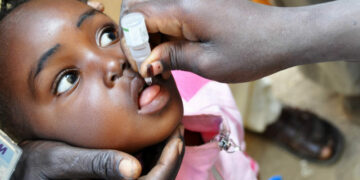Nigeria marked World Tuberculosis Day on March 24 with the theme “Yes! We Can End TB: Commit, Invest, Deliver. ” However, the stark reality confronting the nation demands more than ceremonial observances.
The tuberculosis situation in Nigeria has reached a critical juncture that requires immediate attention and decisive action. With 80,000 patients unidentified and untreated in 2024 alone, we are witnessing not just a public health crisis but a national emergency that threatens to undermine decades of progress.
Nigeria now ranks third globally in TB burden, behind only India and China – a distinction we should find deeply troubling. Every hour, nearly 30 Nigerians die from this preventable and treatable disease. This translates to approximately 245,000 deaths annually, with about 590,000 new cases occurring each year. These are not mere statistics; they represent families torn apart, communities devastated, and economic potential squandered.
The funding shortfall of $404 million for 2025 represents the most immediate threat to our TB control efforts. This financial gap is already manifesting in tangible ways – TB medications allocated for next year have been diverted to meet unforeseen treatment demands in 2024, while a $5 million funding gap caused by a recent U.S. government executive order has crippled active case-finding efforts across 18 states.
With 24 percent of Nigeria’s TB funding coming from external sources, the dependence on international goodwill has left public health infrastructure vulnerable to diplomatic fluctuations and donor fatigue.
The consequences of this funding crisis are both immediate and far-reaching. Despite the identification of 439,000 people with TB, only 418,000 received treatment, leaving thousands without medical intervention. At approximately $600 to treat one TB patient and around $5,000 for a drug-resistant case, the financial burden quickly becomes overwhelming without proper budgetary planning and allocation.
Meanwhile, poor Nigerians bear the brunt of this failure through catastrophic out-of-pocket expenses averaging N120,000 per household – costs that push already vulnerable families deeper into poverty.
Even more alarming is Nigeria’s abysmal TB detection rate, among the lowest in the world at just 16 percent of cases being notified to the National TB and Leprosy Control Programme. The three-month average delay from symptom onset to treatment not only increases suffering but facilitates further transmission throughout communities. This represents a systemic failure that cannot be attributed to lack of knowledge – we know what works, but we have failed to implement it at scale.
The rise of multi-drug resistant TB strains is affecting approximately 2.9 percent of all cases in Nigeria and presents another looming catastrophe. This high proportion reflects years of inadequate treatment protocols, interrupted drug supplies, and fragmented care systems.
Each untreated case potentially spawns new drug-resistant infections, creating a spiral of increasingly expensive and difficult-to-treat disease.
We acknowledge the government’s initiatives outlined in the National TB Strategic Plan (2021-2026) and the Nigeria Health Sector Renewal Investment Initiative. The planned deployment of 370 portable digital X-ray machines and the expansion of TB services across public and private health facilities under the Universal Health Coverage agenda represent steps in the right direction.
However, in our opinion these efforts will remain hollow gestures without matching financial commitment and systematic implementation.
The economic argument for investing in TB control is compelling. Spending 81 billion Naira annually could achieve a 90 percent reduction in TB deaths and an 80 percent reduction in new cases by 2030. This investment would give each TB patient an average of 22 additional years of life and prevent at least one new case for each patient treated.
Even valuing a year of life conservatively at 200,000 Naira, each Naira spent would yield benefits worth about 10 Naira. Few public health interventions offer such a clear return on investment.
Consequently, as international funding faces uncertainty, Nigeria must increase domestic financing for TB programs. Relying on external donors for three-quarters of our TB response not only compromises our sovereignty but subjects our public health priorities to foreign policy considerations.
The government must fulfill its pledge to allocate at least 15 percent of the national budget to healthcare, with specific earmarks for TB control reflective of the disease’s outsized impact.
The World TB Day should serve as a catalyst for action, not merely symbolic recognition. We call on all stakeholders – government agencies, development partners, civil society organisations, religious institutions, and communities – to unite in common purpose.
The TB crisis demands a whole-of-society response, with each sector contributing according to its capabilities and sphere of influence.
Nigeria stands at a crossroads in its fight against tuberculosis. We can choose to continue the pattern of underfunding and fragmented interventions, consigning hundreds of thousands more Nigerians to preventable suffering and death. Or we can seize this moment to demonstrate true leadership by making the necessary investments and implementing proven strategies at scale. The choice before us could not be clearer, nor the stakes higher.





